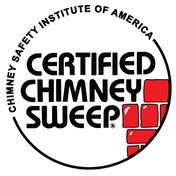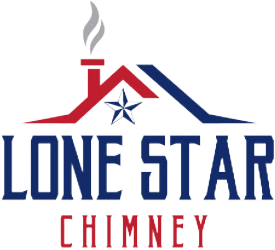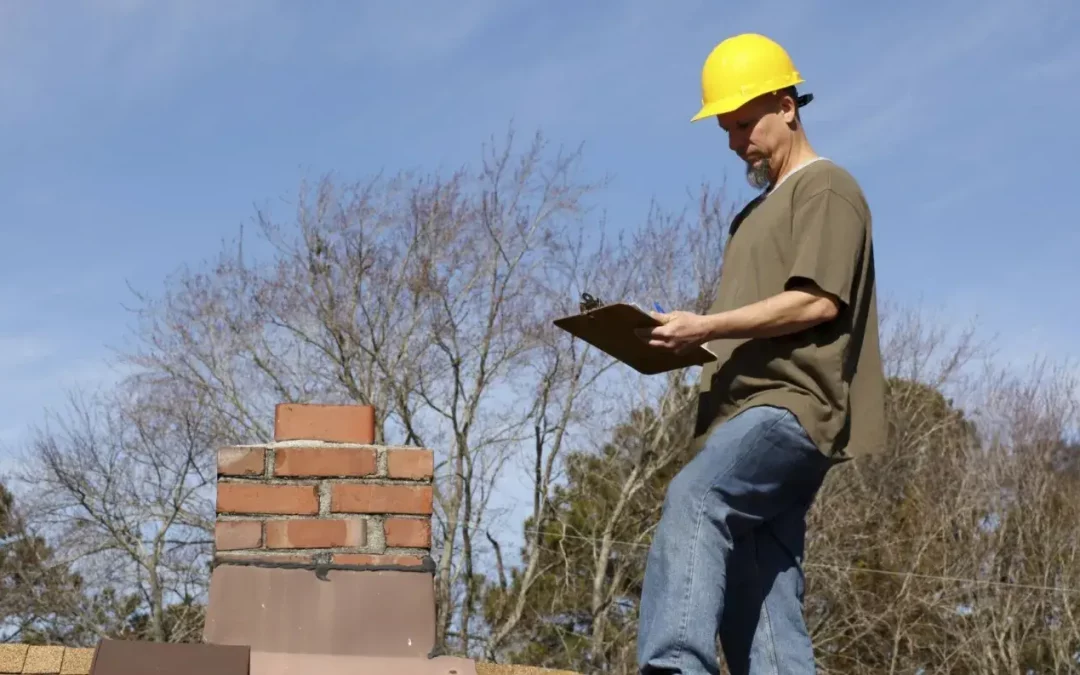When most Houston homeowners think about chimney inspections, they immediately picture traditional wood-burning fireplaces with crackling logs and dancing flames. However, the reality is that every type of fireplace system—gas, electric, wood-burning, and even pellet stoves—requires regular chimney inspections to ensure safe operation and prevent potentially devastating fire hazards.
In a city like Houston, where temperatures can fluctuate dramatically between seasons, fireplace usage patterns vary widely. From the occasional cool winter evening to the ambiance of a gentle flame during a spring gathering, Houstonians rely on their fireplaces for both practical heating and aesthetic enhancement of their homes. Unfortunately, many homeowners mistakenly believe that only wood-burning systems require professional attention, leaving countless homes vulnerable to preventable fire risks.
This common misconception puts Houston properties at unnecessary risk. Fire safety experts recommend annual chimney inspections regardless of fireplace type or frequency of use. These professional evaluations serve as the first line of defense against chimney fires, carbon monoxide poisoning, and structural damage that could compromise your home’s integrity and your family’s safety.
Understanding the Unique Chimney Concerns in Houston’s Climate
Houston’s distinctive climate creates specific challenges for chimney systems that many homeowners don’t realize until problems arise. The city’s humidity, occasional severe weather, and temperature swings can accelerate deterioration in ways that might surprise even long-time residents.
The Gulf Coast humidity that Houston experiences throughout much of the year creates ideal conditions for moisture accumulation within chimney structures. This persistent dampness breaks down masonry over time, compromises flashing, and can lead to water infiltration that damages internal components. Additionally, Houston’s sporadic freezing temperatures can cause freeze-thaw cycles that further stress chimney materials, creating cracks and separation points that might go unnoticed without professional inspection.
Hurricane season brings another dimension of concern, as high winds can dislodge chimney caps, damage crowns, and create entry points for water and debris. Even during less severe weather events, Houston’s frequent heavy rainstorms put chimney waterproofing systems to the test, highlighting any weaknesses in the chimney’s protective barriers.
These regional climate factors make regular chimney inspections particularly important for Houston homeowners. Professional chimney technicians familiar with local conditions can identify early signs of weather-related damage before they escalate into major structural issues or fire hazards. Through comprehensive chimney inspection services, Houston homeowners can protect their investment while ensuring their fireplace systems remain safe to operate year-round.
Fire Hazard Risks Across Different Fireplace Types
Each fireplace type presents unique fire safety considerations that should be understood by homeowners. Contrary to popular belief, even “cleaner” burning options like gas fireplaces aren’t exempt from potential hazards.
Wood-burning fireplaces remain the most recognizable fire risk culprits. They produce creosote—a highly flammable, tar-like substance that accumulates inside chimney flues with each fire. When creosote builds up to sufficient levels (sometimes as little as 1/8 inch thickness), it can ignite, causing intense chimney fires that reach temperatures exceeding 2,000°F. These fires can crack chimney liners, damage masonry, and potentially spread to surrounding home structures.
Gas fireplaces, while producing no creosote, still require chimney inspections for different reasons. Venting systems for gas appliances must maintain proper function to safely exhaust carbon monoxide and other combustion gases. Blockages from fallen debris, animal nests, or deteriorated components can redirect these hazardous gases back into living spaces. Additionally, gas fireplace components can wear out over time, potentially leading to gas leaks if not properly maintained.
Electric fireplaces don’t utilize traditional chimneys but often occupy converted wood-burning fireplace spaces. In these cases, the existing chimney structure should still be inspected to ensure it’s properly sealed or repurposed. Neglected, unused chimneys can develop structural issues that compromise home safety, including potential water damage that affects electrical components.
Pellet stoves, gaining popularity for their efficiency, require venting systems that must be regularly inspected. Their smaller-diameter flues can become obstructed more easily than traditional chimneys, and their mechanical components need professional evaluation to prevent malfunction-related fire risks.
Regardless of fireplace type, professional chimney inspection services provide essential safety verification. These evaluations identify potential hazards before they escalate into emergency situations, giving Houston homeowners peace of mind about their fireplace systems.
The Three Levels of Professional Chimney Inspection Explained
The Chimney Safety Institute of America (CSIA) establishes industry standards for chimney inspections, outlining three distinct levels based on thoroughness and circumstances. Understanding these levels helps Houston homeowners determine which type of chimney inspection best suits their specific needs.
Level 1 chimney inspections represent the basic annual maintenance assessment recommended for all fireplace systems. During this inspection, technicians examine readily accessible portions of the chimney exterior, interior, and accessible portions of the appliance and chimney connection. They look for basic structural soundness, freedom from deposits and obstructions, and proper clearances from combustible materials. This level of chimney inspection is appropriate when the system has been regularly maintained and no significant changes have occurred.
Level 2 chimney inspections provide more thorough evaluation and are required when changes occur to the system, such as replacement of the connected appliance or flue, after a chimney fire, or when selling or transferring property. These inspections include everything in a Level 1 assessment plus inspection of accessible areas of attics, basements, and crawl spaces. Technicians typically use specialized video scanning equipment to examine flue interiors for damage not visible to the naked eye. For Houston homes changing ownership, Level 2 chimney inspections offer buyers valuable safety assurance.
Level 3 chimney inspections represent the most comprehensive evaluation and involve partial removal of components like chimney crowns, interior walls, or other structures when necessary to thoroughly examine suspected hazards identified during Level 1 or Level 2 inspections. These invasive assessments are only recommended when serious hazards are suspected and cannot be evaluated through less intrusive methods. While rare, Level 3 chimney inspections may be necessary after significant events like house fires, major weather damage, or when structural shifts in the home affect the chimney system.
Professional chimney inspection services will recommend the appropriate level based on your fireplace’s condition and circumstances. For most Houston homeowners with regularly maintained systems, annual Level 1 inspections provide sufficient safety verification, with more extensive evaluations performed only when conditions warrant additional scrutiny.
Common Issues Discovered During Houston Chimney Inspections
Experienced chimney inspectors in Houston frequently identify several recurring issues during their evaluations. Recognizing these common problems helps homeowners understand the value of professional chimney inspection and maintenance.
Moisture damage ranks among the most prevalent chimney concerns in Houston due to the city’s humid climate and frequent precipitation. Water infiltration leads to deteriorating mortar joints, rusted dampers and fireboxes, damaged flue liners, and compromised structural integrity. Professional chimney inspection services can identify moisture-related problems before they escalate, often recommending waterproofing solutions specifically designed for Houston’s challenging climate conditions.
Creosote buildup remains a significant fire hazard in wood-burning systems throughout Houston neighborhoods. This highly flammable substance accumulates gradually with each fire, clinging to flue liners and reducing interior chimney dimensions. Through specialized camera equipment, chimney inspection technicians can assess creosote levels throughout the entire flue system, recommending appropriate cleaning when deposits reach dangerous levels. Many homeowners are surprised to discover substantial creosote accumulation even when their fireplaces see only occasional use.
Animal intrusions present another common finding during Houston chimney inspections. The city’s diverse wildlife population—including birds, squirrels, raccoons, and occasionally bats—often view uncapped chimneys as ideal nesting locations. These unwelcome visitors introduce flammable nesting materials, create blockages that impede proper venting, and can damage chimney components. Professional inspectors check for signs of animal activity and recommend appropriate preventative measures, including quality chimney caps and screens.
Deteriorating chimney liners frequently concern Houston homeowners, particularly in older properties. These essential components protect surrounding structure from heat transfer and prevent combustion gases from seeping into living spaces. During thorough chimney inspection procedures, technicians evaluate liner integrity using specialized equipment, identifying cracks, gaps, or deterioration that could compromise safety. When liner issues are discovered, professional assessment helps determine whether repairs or complete replacement represents the most appropriate solution.
Structural shifts affecting chimney stability occur with surprising frequency in Houston due to the region’s expansive clay soils. These ground movements can create leaning chimneys, separated crowns, and compromised connections between the chimney and home structure. Professional chimney inspection services include evaluation of these structural elements, alerting homeowners to concerning shifts before they create imminent hazards.
By identifying these and other issues early through regular chimney inspections, Houston homeowners can address problems proactively, avoiding more costly repairs and maintaining their fireplace systems’ safety and functionality.
The Long-Term Benefits of Regular Chimney Inspections
Beyond immediate safety concerns, consistent chimney inspection services provide Houston homeowners with numerous long-term advantages that protect both property value and family well-being.
Property value protection represents a significant benefit of regular chimney maintenance. Well-maintained fireplace systems are attractive selling features in Houston’s real estate market, where homebuyers increasingly prioritize move-in ready properties. Clean inspection reports provide documentation of responsible home maintenance, potentially expediting sales processes and supporting asking prices. Conversely, neglected chimney systems often flag concerns during pre-purchase home inspections, potentially delaying closings or requiring costly last-minute repairs.
Insurance compliance represents another important consideration. Many homeowner insurance policies require regular chimney inspections and maintenance to maintain coverage validity. Some policies specifically exclude damage resulting from neglected chimney systems, creating potential financial exposure for homeowners who skip regular evaluations. Professional chimney inspection documentation provides valuable evidence of compliance with insurance requirements, protecting coverage in case claims become necessary.
Extended system lifespan results from the proactive maintenance that follows thorough inspections. By identifying and addressing minor issues before they escalate, homeowners avoid premature deterioration of chimney components. Quality chimney inspection services often include recommendations for protective measures like waterproofing, crown sealing, or cap installation that significantly extend functional lifespans of these important home features.
Energy efficiency improvements sometimes emerge from comprehensive chimney evaluations. Properly functioning dampers, sealed flue systems, and well-maintained components prevent unnecessary heat loss during winter months and unwanted air infiltration during Houston’s hot summers. These efficiency benefits translate to lower utility costs and improved indoor comfort throughout changing seasons.
Peace of mind remains perhaps the most valuable long-term benefit of regular chimney inspections. Houston homeowners who maintain consistent inspection schedules know their fireplace systems have received professional safety verification, allowing them to enjoy their fireplaces without underlying concerns about potential hazards. This confidence extends to overall home safety, particularly important for families with children, pets, or elderly residents.
By viewing chimney inspections as preventative investments rather than optional expenses, Houston homeowners protect both their property’s physical integrity and their family’s ongoing safety.
Preparing Your Houston Home for a Chimney Inspection
To maximize the effectiveness of professional chimney inspection services, Houston homeowners should take several preparatory steps before technicians arrive.
Clearing access points ensures inspectors can thoroughly examine all relevant areas. Remove decorative items from mantels, hearths, and surrounding areas. If possible, avoid fires for at least 24 hours before the inspection to allow complete cooling of all components. For gas fireplaces, locate any control panels or access doors ahead of time. Ensure technicians can easily reach the fireplace exterior without moving furniture or valuables.
Gathering documentation helps establish maintenance history for the inspector. Collect records of previous chimney inspections, repairs, installations, or modifications. If you’ve experienced specific issues like water leaks, unusual odors, or operational concerns, document these observations to share with the inspector. For newer installations, having appliance manuals available can provide valuable reference information during the evaluation.
Outdoor preparation facilitates thorough exterior assessment. Trim back any vegetation obscuring chimney access, particularly overhanging branches or climbing vines that might impede inspection of upper chimney portions. Clear pathways to exterior walls where chimney components exit the structure. If possible, provide ladder access points that avoid delicate landscaping or obstacles.
Indoor preparation creates an efficient working environment. Secure pets in areas away from the inspection zone to prevent interference or escapes during door openings. Remove valuable or fragile items from areas surrounding the fireplace and potential inspection pathways. Cover nearby furniture if the inspection might involve soot or debris disturbance. Create clear floor space where inspectors can place equipment or tools.
Compiling questions optimizes the educational value of the inspection. Note any specific concerns about your system’s operation, efficiency, or safety ahead of time. Consider photographing unusual circumstances or problem indicators to ensure thorough discussion during the inspection. Prepare to discuss your typical usage patterns so inspectors can provide appropriately tailored advice.
By completing these preparatory steps, Houston homeowners facilitate thorough chimney inspections while maximizing the value of their professional service investment.
Selecting a Qualified Chimney Inspector in Houston
Finding properly qualified chimney inspection professionals requires understanding industry credentials and asking appropriate questions. Houston homeowners should consider several factors when selecting service providers.
Certification verification represents the first critical consideration. Reputable inspectors hold credentials from recognized organizations like the Chimney Safety Institute of America (CSIA) or the National Chimney Sweep Guild. These certifications indicate the technician has completed standardized training and adheres to established industry safety protocols. Beyond basic certifications, some inspectors pursue advanced specializations related to specific system types, restoration techniques, or masonry evaluation.
Insurance and licensing status provides important protection for homeowners. Qualified chimney inspection services carry appropriate liability insurance and workers’ compensation coverage, protecting homeowners from potential liability during service provision. They also maintain any local business licenses required by Houston regulations. Before scheduling service, homeowners should request verification of these important credentials.
Experience with Houston’s specific challenges matters significantly. The region’s climate conditions, building styles, and common chimney configurations create unique inspection considerations. Technicians familiar with these regional factors bring valuable contextual knowledge to their evaluations. When interviewing potential service providers, ask how long they’ve operated in the Houston area and whether they’ve worked with your specific fireplace type and home style.
Inspection methodology indicates service thoroughness. Quality providers willingly explain their process, including which chimney components they examine, what testing procedures they employ, and how they document findings. The most reputable chimney inspection services utilize modern technology like video scanning equipment alongside traditional physical evaluation techniques. They should clearly explain which inspection level they recommend for your circumstances and why.
Written reporting practices distinguish professional operators. Thorough chimney inspections should conclude with detailed written documentation of findings, including photographs of concerning conditions when appropriate. These reports provide valuable reference for future maintenance decisions and may be required for insurance or real estate purposes. Ask potential service providers what documentation they provide and whether digital copies are available for your records.
By carefully evaluating these factors before scheduling service, Houston homeowners can select qualified chimney inspection professionals who provide genuinely valuable safety assessments rather than superficial evaluations or unnecessary repair recommendations.
Read more:


